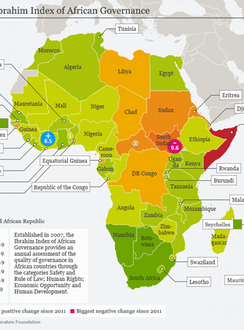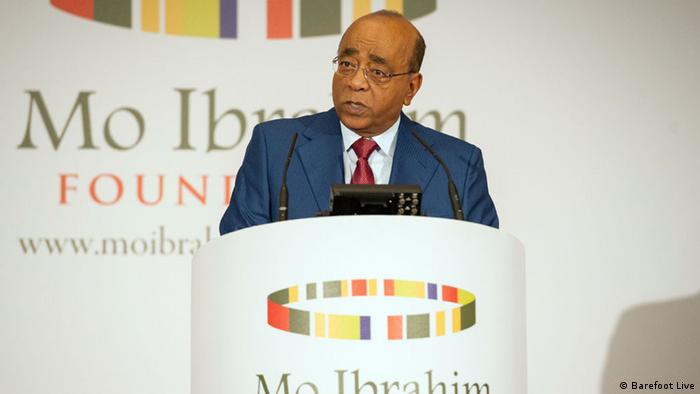Mauritius has retained its top slot as the leading democracy in Africa, while Somalia lagged at the furthest end, according to the 2015 Ibrahim Index of African Governance (IIAG).
The survey rates 54 African nations on issues focusing on democracy, stability and human rights. It also rates countries on how they address the issue of corruption, free elections, infrastructure, poverty, health and education.
However, the survey also rated Zimbabwe as one of the six countries that made strides in addressing governance issues, despite its leader Robert Mugabe being one of Africa’s longest serving leaders. DW spoke to Pedzisai Ruhanya, the director for Zimbabwe Democracy Institute (ZDI).
DW: What is your reaction to Zimbabwe’s latest ranking by the Ibrahim survey? Is it a true reflection of what is on the ground?
Pedzisai Ruhanya: The report is a bit superficial in the sense that its analytic length is focused on civil and political rights. Whereas we agree that there has been a recession and some kind of stability, there is great abuse of civil and political rights. Because of the economic recession that the country is facing is that there has also been substantive violation of social economic rights. There is an appalling failure in the issue to do with the protection of social economic rights stated in chapter four of the new constitution: the bill of rights that talks of issues of provision of clean water the right to health, the right to education. All those social economic rights are not being realized. We are also seeing a monumental loss of jobs. That also violates citizens’ capacity to access health, clean water and education. So there is a problem in the analytic framework that the Mo Ibrahim uses to analyze the situation in Harare because in the long run the lack of social economic rights in terms of health delivery will impact on the realization of civil and political rights when citizens start to demand those rights. Currently in the city of Harare, they (authorities), are demolishing citizens’ houses where as in the constitution citizens have the right to housing.

DW: In your opinion how can you rate Zimbabwe’s state of governance?
Zimbabwe’s state of governance is very appalling in the sense that efforts to liberalize the economy are not being matched with efforts to liberalize our politics. Our politics is authoritarian and because of that it is failing to steer economic liberalization and because of that Zimbabwe continues to have a huge democratic governance deficit.
DW: What can be done to rectify the situation in Zimbabwe?
The ruling party has to change. They have to reform or they die. Without political reforms it is going to be very difficult to unlock economic reforms, to realize economic growth, to attract foreign direct investment, to attract international partners and to do business in Zimbabwe under an authoritarian regime. They want to have what I would call authoritarian capitalism in a world that is moving towards democratization. There are a lot of contradictions within the ruling party associated with President Robert Mugabe and associated with lack of political reform and lack of predictable future of the state.
DW: How important is the governance peer review for African countries particularly like the case of Zimbabwe by this foundation?
It is important but, it must be solid and based on evidence based research that they can use them to make whatever pronouncement they make on Zimbabwe. They were looking at I think minimized procedural democratic index instead of looking at also substantive democratization, which deals with the question of livelihoods. In order to make meaning in developing countries like Zimbabwe it is not good enough to just look at civil and because human rights are indivisible.
Dr. Pedzisai Ruhanya is the Director for Zimbabwe Democracy Institute a politically independent and not for profit public policy think-tank based in Zimbabwe.
Source: DW



